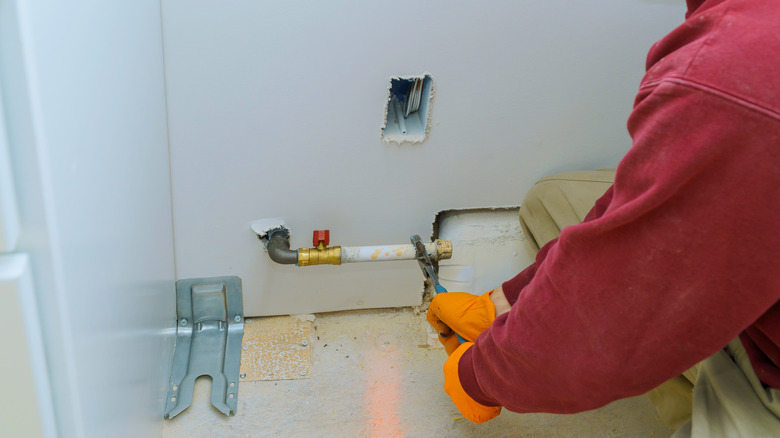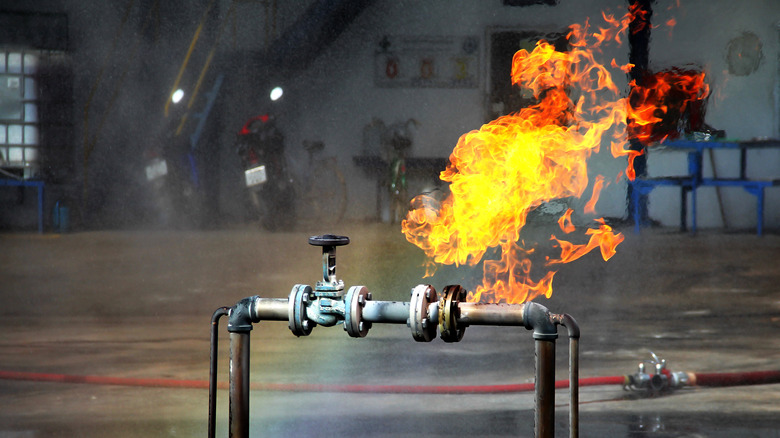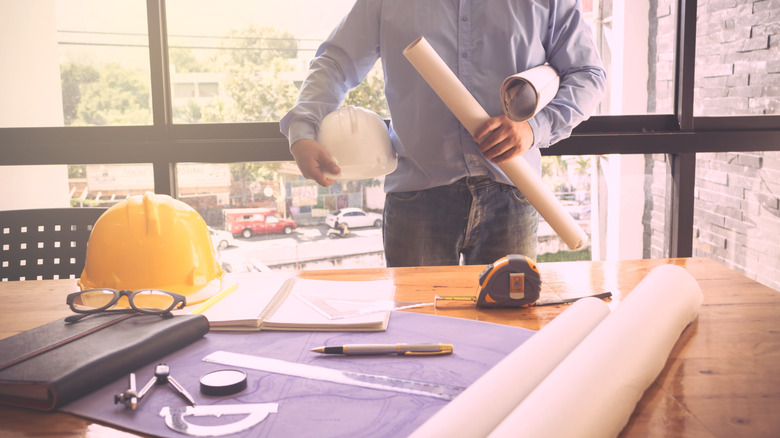What You Should Know Before Installing A Gas Line
Natural gas is a popular source of fuel in the U.S., where over half of all homes depend on it for heating, notes the U.S Energy Information Administration. It is no coincidence that gas is a preferred source of fuel for most households — it's convenient, relatively cheap, and is used for everything from cooking to heating, and even drying clothes in the laundry room. However, in order to enjoy the benefits of gas in your home, you need a gas line installed and connected to the necessary appliances.
Moreover, older homes periodically need the gas line replaced, or it might need upgrading to accommodate new appliances. At first glance, gas line installation might seems like a task you could attempt yourself. You may have done plenty of home repairs, and installing a gas line shouldn't be too difficult, right? Well, this can't be any further from the truth — installing a gas line is not only complex, but it also requires a trained professional to do it safely. With this in mind, here is what you need to know before installing a gas line, and why you are better off leaving it to the experts.
Gas is flammable and dangerous
Handling gas lines is a very dangerous job, which is reason enough to leave it to the professionals. If the lines are not properly installed, you risk gas leaks in your home that could ultimately cause serious health hazards or cause fires large enough to raze down buildings. Another danger with natural gas is carbon monoxide poisoning from faulty appliances. According to Iowa State University, exposure to carbon monoxide, especially when inhaled for a long time, limits the amount of oxygen in the blood, which can quickly turn fatal.
Registered gas installers have the correct tools and necessary testing equipment to ensure the safety of your appliances and your home, notes Renovation Find Blog. Let's face it, as a regular homeowner, you neither have the expertise nor the right tools to install or repair gas lines yourself. Therefore, it is in everyone's best interest to call the professionals to take care of this complex and dangerous installation.
Codes and licensing
For safety reasons, any gas line installation needs to follow a particular building and plumbing code. What's more, the codes are constantly updated to keep up with new technology, and only a qualified technician will know of any new installation requirements. Moreover, most municipalities require trained professionals in that particular region to have a permit before carrying out any installations or repairs. The Gas Connection mentions that either the homeowner or a licensed plumber can request a gas line permit before installation.
However, allowing the plumber to obtain the permit is recommended because some jurisdictions might need technical information that you are aware of. Securing approval of your permit does take time, depending on the scope of the project. ADU notes that getting a permit will cost you between $50 to $200, and a professional can also help you navigate the process if you are not so familiar with it.


